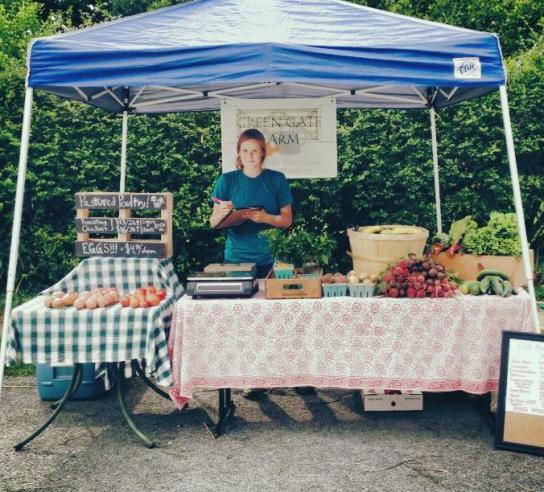Folks wonder what farmers do in the winter time asking 'Do you get to slow down?' Well, yes and no. Farmers with livestock may not have to alter their routine all that much. Pigs, horses, cattle, etc. require a similar level of care in cold weather as when the pastures are green and lush. At Green Gate Farm our pigs and layer flock are cozy in their winter quarters, but since we don't raise broiler chickens in the winter, there is a bit less outside work in that regard.
As produce growers, winter is a time of indoor work. We inventory seed, design planting schedules and revamp greenhouse and field plans. And of course, like all farmers, we try to play catch-up with the mountain of record keeping and paperwork that may . . . or may not . . . have been attended to over the busy growing season. Yes, farmers are still busy during the winter, but the kind of work changes, and the pace is definitely slower. So in the depths of snowy February, can farmers hope to take a break to recharge their batteries? We can't speak for all the other farmers we know, but for Leslie and Lars PASA is the answer to that question.
Every February, PASA (Pennsylvania Association of Sustainable Agriculture) puts on a dynamite, energy-infused, information intensive, workshop-based conference called Farming for the Future. Leslie and Lars have attended PASA together for the past two years, and Leslie has attended for several years prior. Held at Penn State in State College PA, PASA offers a massive forum for growers in Pennsylvania and elsewhere to connect, share ideas and experiences, and attend workshops. The dizzying array of topics includes biodynamic farming, encouraging earthworm populations in your soil, financial management for small farms, and Lars's favorite, draft horse power.
One needn't be a farmer to attend PASA, and there are scholarships to help folks interested in attending. (Lars gratefully received a scholarship which funded his conference attendance.) If you want to see what is happening in the Eat Local movement from the grower's perspective and have several days to explore the many ways in which we try to improve our businesses and practices, conferences like PASA's Farming for the Future is the perfect way. To read more about what PASA is all about and learn more about future conferences, visit www.pasafarming.org.
As produce growers, winter is a time of indoor work. We inventory seed, design planting schedules and revamp greenhouse and field plans. And of course, like all farmers, we try to play catch-up with the mountain of record keeping and paperwork that may . . . or may not . . . have been attended to over the busy growing season. Yes, farmers are still busy during the winter, but the kind of work changes, and the pace is definitely slower. So in the depths of snowy February, can farmers hope to take a break to recharge their batteries? We can't speak for all the other farmers we know, but for Leslie and Lars PASA is the answer to that question.
Every February, PASA (Pennsylvania Association of Sustainable Agriculture) puts on a dynamite, energy-infused, information intensive, workshop-based conference called Farming for the Future. Leslie and Lars have attended PASA together for the past two years, and Leslie has attended for several years prior. Held at Penn State in State College PA, PASA offers a massive forum for growers in Pennsylvania and elsewhere to connect, share ideas and experiences, and attend workshops. The dizzying array of topics includes biodynamic farming, encouraging earthworm populations in your soil, financial management for small farms, and Lars's favorite, draft horse power.
One needn't be a farmer to attend PASA, and there are scholarships to help folks interested in attending. (Lars gratefully received a scholarship which funded his conference attendance.) If you want to see what is happening in the Eat Local movement from the grower's perspective and have several days to explore the many ways in which we try to improve our businesses and practices, conferences like PASA's Farming for the Future is the perfect way. To read more about what PASA is all about and learn more about future conferences, visit www.pasafarming.org.
.jpg)
